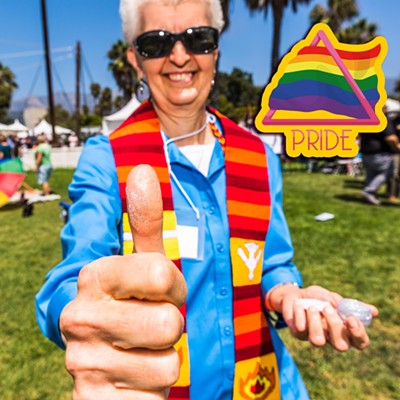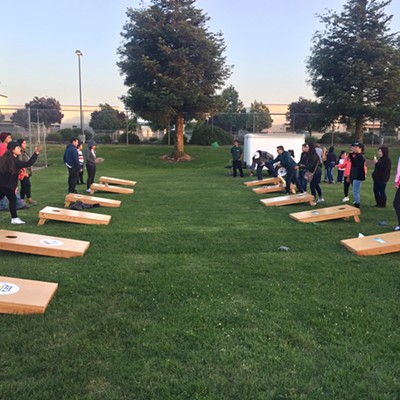A host of Democrats across the United States are trying to bolster access to mental health care and support for LGBTQ-plus youth.
U.S. Sen. Laphonza Butler (D-California), the first Black and openly gay senator to serve in the Senate, introduced the Pride in Mental Health Act on March 14—a day after the Oklahoma medical examiner ruled teenager Nex Benedict’s death a suicide. Benedict, a nonbinary 16-year-old, died a day after a fight in an Oklahoma high school restroom, which was allegedly prompted by bullying over gender identity.
“In the aftermath of discovering nonbinary teen Nex Benedict’s death was ruled a suicide, I think this legislation is really important to highlight how crucial it is that we do more for young LGBTQ-plus kids who maybe don’t have the resources, community, or support to navigate that experience,” Butler spokesperson Christopher Lee told the Sun via email.
If signed into law, the Pride in Mental Health Act would open up grants through the Substance Abuse and Mental Health Services Administration. “Eligible entities” like schools and colleges could apply for these grant funds to provide cultural competency training to caregivers; develop behavioral health and crisis intervention resources; collect data on the behavioral health of LGBTQ-plus youth; and issue school bullying prevention guidelines for LGBTQ-plus students.
A statement from Butler’s office pointed to a 2023 national Trevor Project survey that found 54 percent of participating LGBTQ-plus youth experienced symptoms of depression. Fifteen percent of queer youth reported being threatened with or subjected to conversion therapy.
To combat that, the Pride in Mental Health Act would prohibit grant recipients from providing conversion therapy of any kind, advertising the practice, helping others provide it, and/or referring young people to conversion resources.
According to the most recent data from 2022-23 in the California School, Climate, Health, and Learning Surveys, 44 percent of queer-identifying ninth graders and 50 percent of 11th graders in the Santa Maria Joint Union High School District responded they’ve been harassed one or two times on school property for their sexual orientation in the past 12 months. Forty-three percent and 59 percent of LGBTQ-plus ninth graders and 11th graders, respectively, responded “very much true” or “pretty much true” for social emotional distress caused by the reaction to their sexual orientation.
Cuesta College graduate Raven Hardesty, who uses nonbinary pronouns, told the Sun that it was easier accessing a therapist in high school because their mother advocated for them. Now, their mother follows a hands-off approach, even though Hardesty still lives with her.
“She is very insistent that I’m an adult, so I have to do everything myself now even though I don’t know how,” Hardesty said. “I dealt with quite a bit of hostility, especially in high school … and in high school, I kind of realized I had to get thicker skin to deal with it.”
Twenty-year-old Hardesty’s lived in San Luis Obispo County almost all their life. At 12, they came out as pansexual. Around their first two years of high school in Paso Robles, Hardesty came out as gender fluid. By 2021, they realized they were nonbinary.
In Hardesty’s senior year of high school, they said, an adult woman stalked them because of their queer identity and her own alleged mental health issues. Those troubles leaked into Hardesty’s college years when finding an LGBTQ-plus-supportive therapist proved to be hard for them. Having something like the Pride in Mental Health Act would have helped, they said.
“I’d have someone to talk to about all that and be able to find proper resources and get the help that I needed,” Hardesty said. “I tried to get a therapist or DSPS [Disabled Students Programs and Services] for physical health issues and mental health issues, and I was only ever officially diagnosed with depression. They decided that that wasn’t enough, so they wouldn’t help me, which really, really sucks when you’re trying really hard to get any form of help.”
They’re still struggling to find an LGBTQ-plus-supportive therapist in the county, and they said there are limited options because of insurance hurdles.
For new Cuesta College graduate Maryelizabeth White, who uses nonbinary pronouns, SLO County became a safe queer-affirming space when they moved with their father from Victorville in San Bernadino County.
“I lived in a commuter town in the desert, and everything was about a 30-minute drive away,” White said. “In SLO County, I didn’t have any friends, … and my first introduction into the community itself was going to the Pride fest in 2021. It was crazy, seeing people who are so comfortable with each other, and I felt like a fish out of water, but it was nice.”
Participating in the Pride festival and interacting with Cuesta’s community helped White finally come out to their friends in 2022. But they had trouble finding mental health care in SLO County. It wasn’t until White enrolled in Cuesta that they found an in-person campus therapist who helped them in their journey to figure out who they are.
White switched to a private, insurance-based therapist in their second year at Cuesta.
“I mostly chose it because I couldn’t continue Cuesta therapy during the summer or the winter, only during school, when school is in session,” they said. I found that especially during the winter and the summer, I needed therapy the most.”
The downside: White pays for the new service unlike the sessions at Cuesta, which were free. As the former president of the Cuesta Pride club, White advocated for the community college’s mental health program to LGBTQ-plus students.
“The most vocal complaint, I would say, just the lack of knowing what resources were available to everyone,” they said. “People didn’t really realize how many sessions they had. They didn’t know that it was free. They didn’t know that there was an LGBTQ-trained therapist on campus.”
Director of Student Health Services Nicole Johnson told the Sun that one of Cuesta’s licensed therapists was the first in the cohort for the SLO ACCEPTance Project, which aims to provide academically informed, in-depth LGBTQ-plus mental health training for mental health professionals.
She added that the college provides year-round stigma-reducing events, outreach, and training. But serving the growing needs of LGBTQ-plus students out of a small clinic is a challenge, with students sometimes landing on the waitlist for in-person services.
“It is especially challenging, and a barrier to care, if you are seeking a provider with specific training like LGBTQ-plus affirming care,” Johnson said. “Couple these barriers with living in a more rural area like SLO County. We know that we have a difficult time recruiting and retaining trained medical professionals in our area.”
She said she hopes that the Pride in Mental Health Act will consider that local organizations and communities need infrastructure to support legislative change.
“The greatest impact for the students is that it sends a message that acknowledges the barriers they face by the inadequacies of the system,” Johnson said, “and prioritizes their health and safety with legislation that promotes change by identifying the barriers and specific strategies to overcome them in an effort to improve outcomes for LGBTQ-plus students.”
Reach Staff Writer Bulbul Rajagopal, from the Sun’s sister paper New Times, at [email protected].













